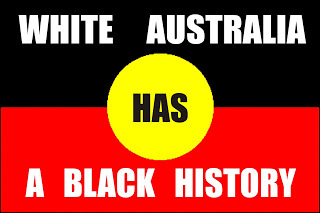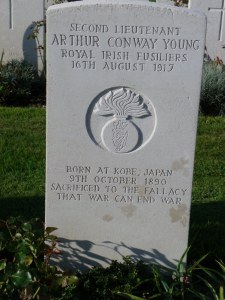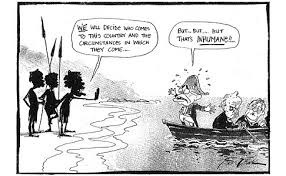Published in issue 1 of The Platform, 8.3.2014.
By Kieran Bennett
The Abbott government is busy laying the groundwork for a massive attack on the conditions of the working class in April’s federal budget. In charge of preparing the ground is Abbott’s hand-picked Commission of Audit. In the line of fire: Medicare and your right to access a GP. The plan: Rob $750 million from Australia’s poorest whilst giving $5.9 billion dollars to private health insurers.
The Commission of Audit
The Commission of Audit is an assortment of business lobbyists and Liberal party mates. The Commission is headed by Tony Sheppard, president of the Business Council of Australia (BCA) and (until October) chairman of Transfield services. As head of the BCA he argues for lower taxes, abolition of the fair work act, and various attacks on the social wage. As chairman of Transfield Services, he profited from mining, coal, and up to $180 million in government contracts for the operation of refugee prisons in Nauru.
Commission member Peter Boxall is a former Chief of Staff to Peter Costello, who spent time working for the IMF during the “structural adjustments” of the 1980s, and played a key role in implementing John Howard’s “Work Choices”.
Amanda Vanstone joins this disreputable bunch bringing her experience as a Howard government minister responsible for attacks on the unemployed, students, and pensioners, the abolition of the Aboriginal and Torres Strait Islander Commission (ending any semblance of self-determination, as flawed as that body was) and of course, the imprisonment of many thousands of refugees.
What’s in a co-payment?
The first shot across the bow aimed in the new attack on Medicare was fired by former Abbott advisor Terry Barnes of the Australian Council of Health Research (ACHR). The ACHR is a “think tank” funded by Australian Unity, a health insurer with a lot to gain from any attack on Medicare. Barnes published a paper to coincide with the election of the Abbott government which called for the private health insurers dream – compulsory upfront fees for Australians utilising Medicare.
Barnes wants a six dollar Medicare “co-payment”. His argument is that poor Australians go to the GP too often, and that an additional six dollar upfront fee would send a “price signal” that would harmlessly discourage over use of GPs. Barnes claims that his proposal would save the Medicare budget $750 million over four years.
But a six dollar GP tax is not the only health co-payment that Australians are already slugged with. Australians already pay “out of pocket” for a raft of health care services. There is no dental care coverage under Medicare leaving most Australians unable to see a dentist unless they can pay upfront. There a significant “gaps” between the cost of services and what is covered by Medicare, and access to medical specialists routinely involves significant upfront expense for Australians on Medicare.
The effect of all of this is frightening. Co-payments fund 17% of health care in Australia. One in six dollars of health care expenditure in Australia is not covered by any insurance, public or private, and is instead forked out directly by those who can afford it least. In the United States, so often denounced for its backward and regressive healthcare system, co-payments only account for 13% of health expenditure.
And the Liberal government is gearing up to whack another six dollar charge on top of this. Far from sending a harmless “price signal”, a six dollar co-payment is a brutal measure that would reduce access to GPs by those who need them most, and already use them least.
Under Utilisation
The idea that Australia’s poorest over use GP services is both obnoxious and untrue. Terry Barnes is on the record as saying that a six dollar upfront payment would not stop anyone who is truly sick from attending a GP, as this only represents the price of “two cups of coffee”. Anyone who thinks six dollars is nothing has never attempted to live on the minimum wage, let alone the dole, family payments or a pension, in Australia.
Australian workers already make choices between rent, food and health care on a weekly basis. Cost already dissuades Australia’s poorest from accessing medical services when they need it.
Current research on working class Australian’s use of health care already shows that “poorer people are already under-utilising healthcare, and their rate of under-utilisation corresponds to their level of illness”. Mapping health care use against average income in Australia already shows that people living in Australia’s poorest neighbourhoods are “three times more likely to delay medical consultations than those living in the wealthiest suburbs”.
The highest use of GP services in Australia, and the highest concentrations of GPs, are not where people are poorest, or where people are sickest (which coincidentally is where people are poorest), but rather where people are wealthiest. The richest use GP services the most, there are more GPs in wealthier suburbs, and Australia’s wealthiest are less likely to fall ill and die young.
Being poor and working class, attempting to live on a shitty wage or poverty level pension, is a major health hazard in Australia. The wealthiest 20% of Australians live an average six years longer than those of us surviving in the ranks of the poorest 20%.
Health Cash for big business
We’re told that Medicare costs too much. A six dollar copayment, effectively a tax levied disproportionately on Australia’s poorest and sickest, might save the health budget $750 million over four years. But there is one area of health spending bloat that the Abbott government will never touch. This year alone the government will spend $5.4 billion subsidising private health insurance.
The private health insurance rebate is an enormous transfer of wealth from tax payers to private, profit oriented health insurers, such as the one funding Terry Barnes’ sick attack on what remains of universal healthcare in Australia.
The private health insurance rebate was meant to make private health insurance more affordable by keeping premiums low. Introduced in 1999, this massive payment to health insurers has occurred at the same time that average health insurance premiums have risen 130%. Average prices (inflation) in the same period have only risen 50%.
The justification for this massive rort was that subsidising private health insurance would save money in the long run by reducing costs to Medicare. The most recent analysis shows that this $5.4 billion subsidy does little to shift costs from Medicare, and its abolition would save the government at least $3 billion a year.
Conclusions
The class self-interest of the government’s health policy is blatant: Tax the poor, throw money at the rich. The so-called Commission of Audit is stacked with the same big business cronies and Liberal mates who have always attacked the conditions of working class Australians, and now they are coming for what remains of Australia’s public health system. If the health budget is unsustainable, and the poorest really do have to be slugged with an additional six dollar GP tax, it is only because the government continues to throw bucket loads of money at private health insurers. The truth is that private health insurers want Medicare dismantled, so that more Australians are forced into their health insurance rackets, paying ever greater premiums for a diminishing health service.




